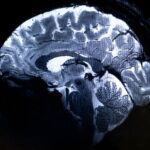Macquarie University psychology researchers have developed a brief online survey that effectively identifies children and teenagers in need of mental health support. The study, led by Distinguished Professor Ron Rapee from the Macquarie University Lifespan Health and Wellbeing Research Centre, has been published in the Journal of the American Academy of Child & Adolescent Psychiatry.
The survey, trialed with 14,000 young people, screens for depression, anxiety, ADHD, and eating disorders. Interestingly, findings suggest that simply completing the survey may help reduce mental distress among students.
The Need for Early Intervention
Professor Rapee highlights that around 14% of young Australians experience emotional disorders, yet only a quarter receive professional support. Unlike behavioral issues, these disorders often go unnoticed, making early detection crucial. Schools, being central to children’s daily lives, offer an ideal environment for mental health check-ins, but such programs are rare in Australia.
How the Survey Works
The researchers designed two versions of the survey: one for Years 4 and 5 and another for Years 6 to 11. The survey asks scaled questions regarding students’ emotional well-being. Optional sections include screening for peer victimization, self-harm, and suicide risk. If a student scores high on risk factors, schools receive real-time alerts, ensuring immediate intervention.
The BEACON survey, refined after initial trials, takes only five minutes to complete. It was successfully implemented with 10,660 students in 2022. Results showed that students who had previously taken the survey reported lower emotional distress, suggesting increased awareness and help-seeking behaviors.
Cost-Effective and Impactful
Monash University’s Professor Cathy Mihalopoulos analyzed the program’s cost-effectiveness. Findings suggest that even a minor reduction in BEACON scores could make the screening financially viable, potentially leading to long-term healthcare savings.
Real-World Applications
Insights from the BEACON study have contributed to the development of My Mind Check, an evidence-based tool now available to schools to assess and improve student mental health.
Disclaimer: This article provides general information and should not be considered medical or psychological advice. Parents, educators, and caregivers should consult professionals for individual concerns regarding children’s mental health.











